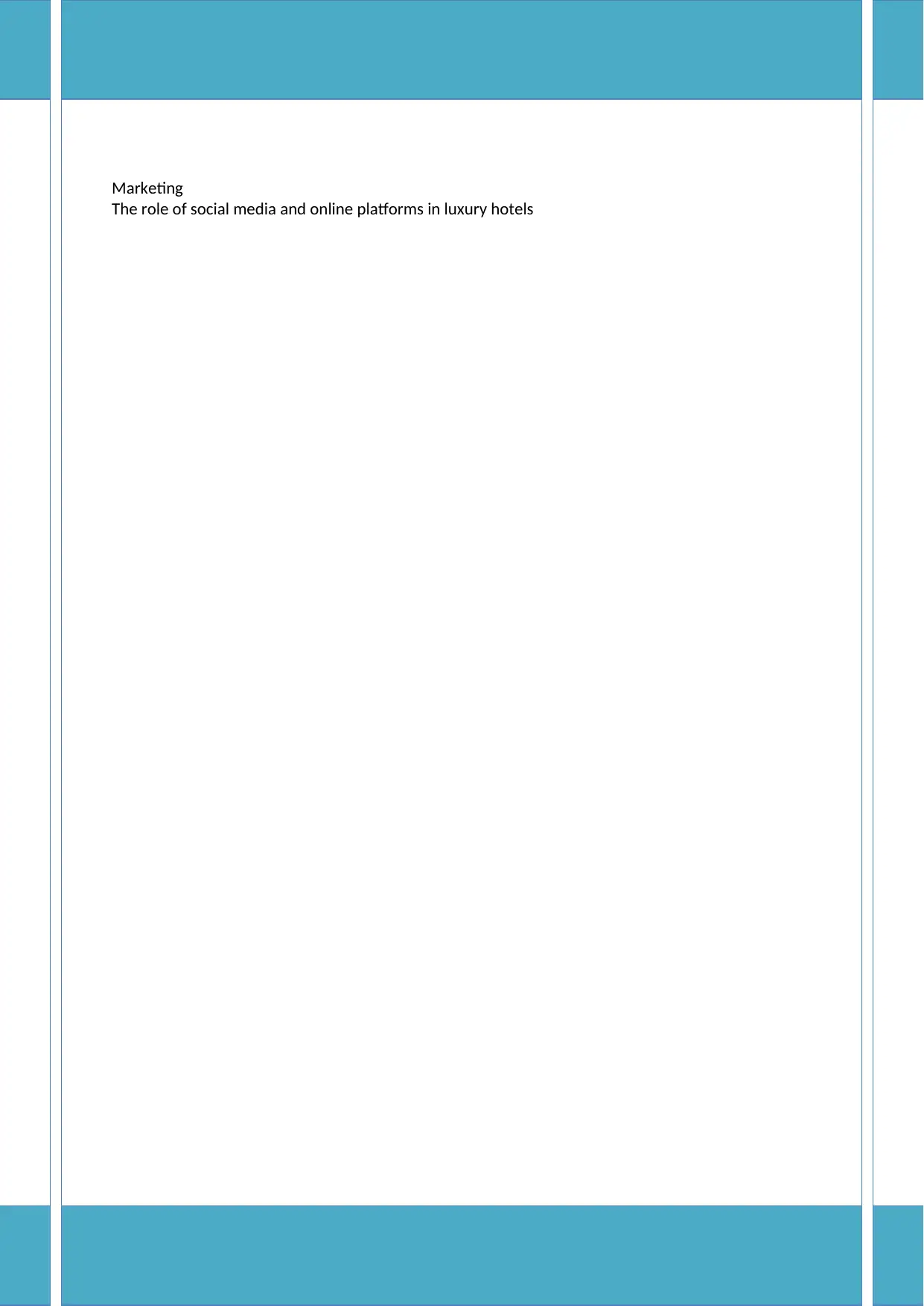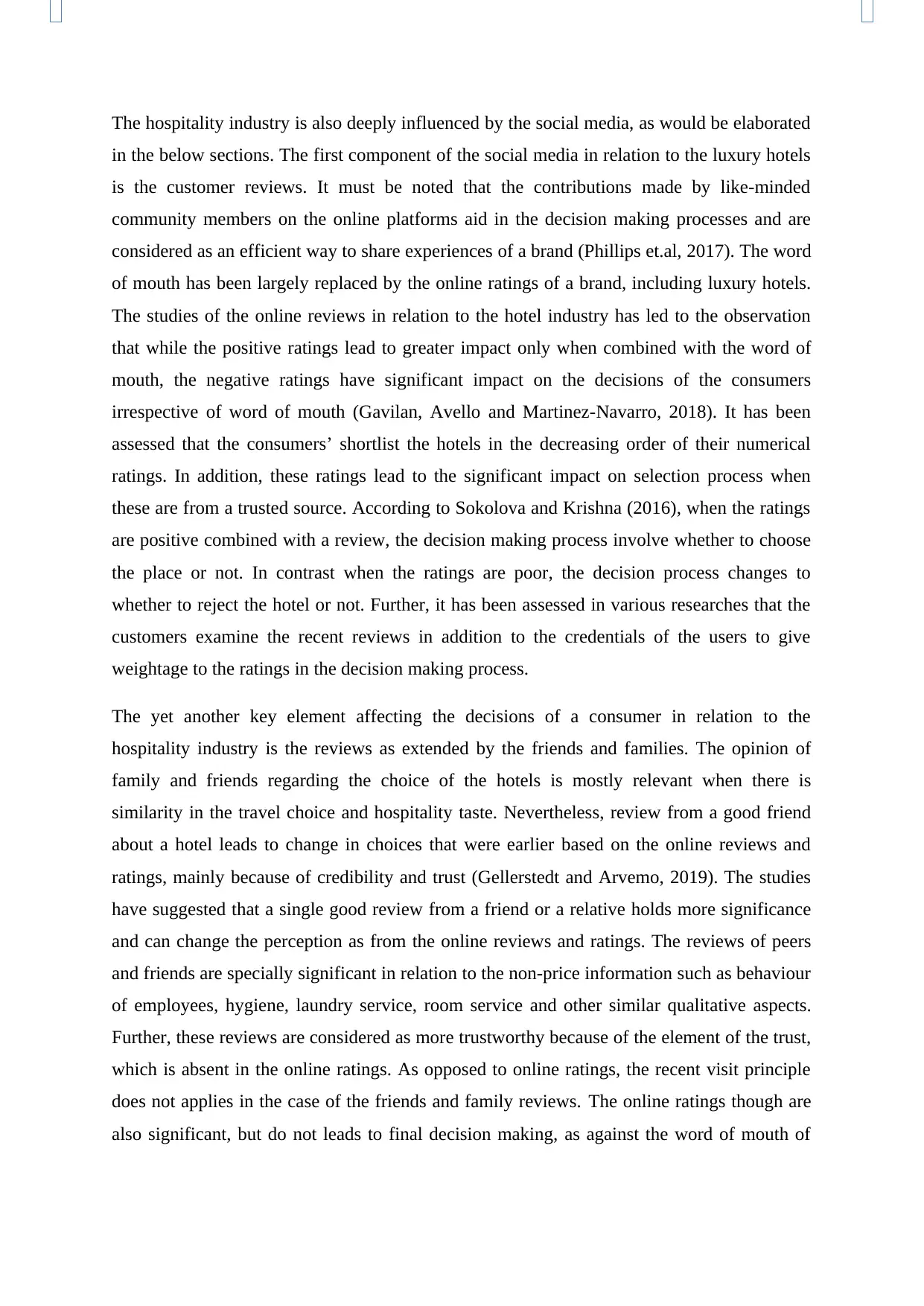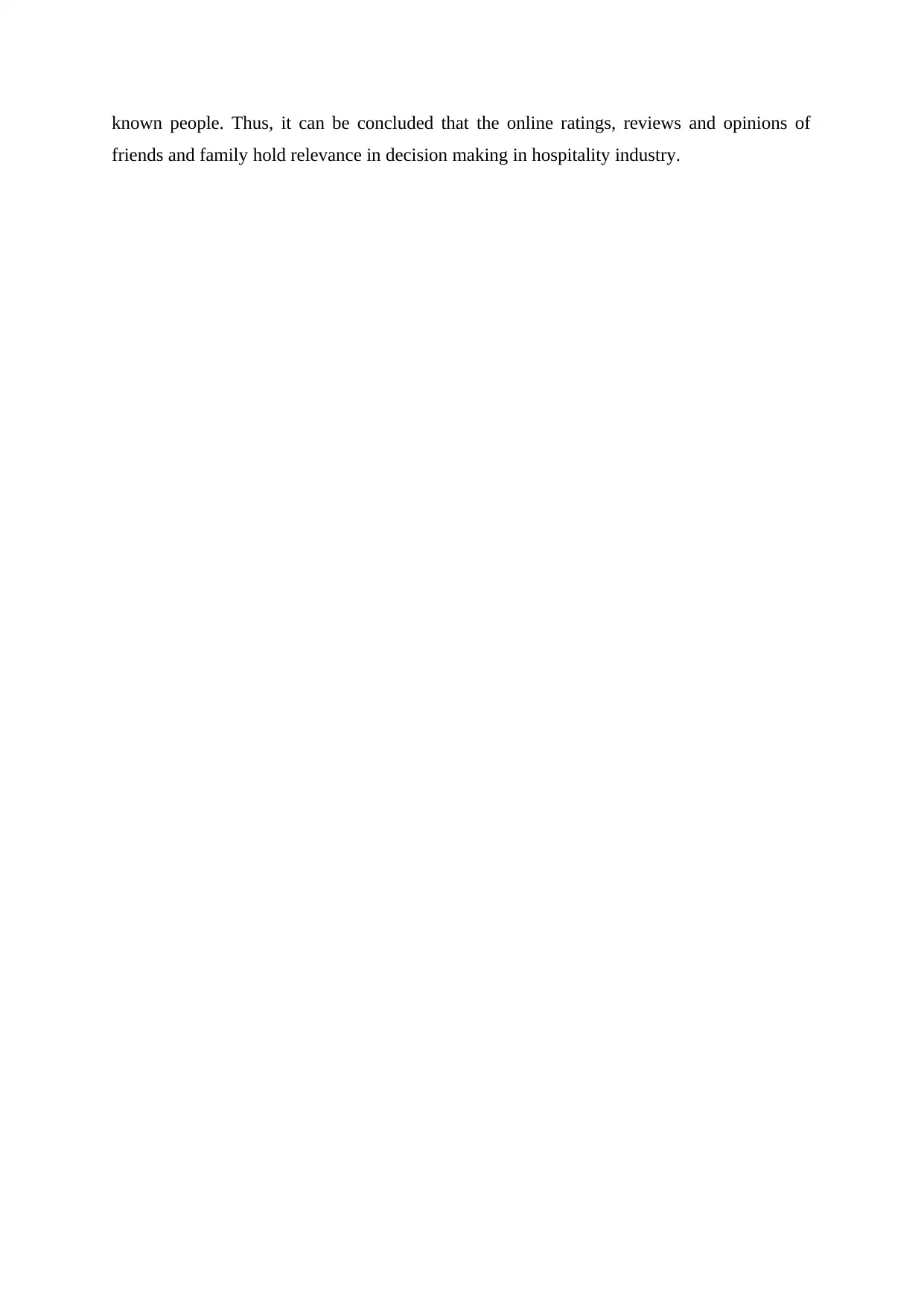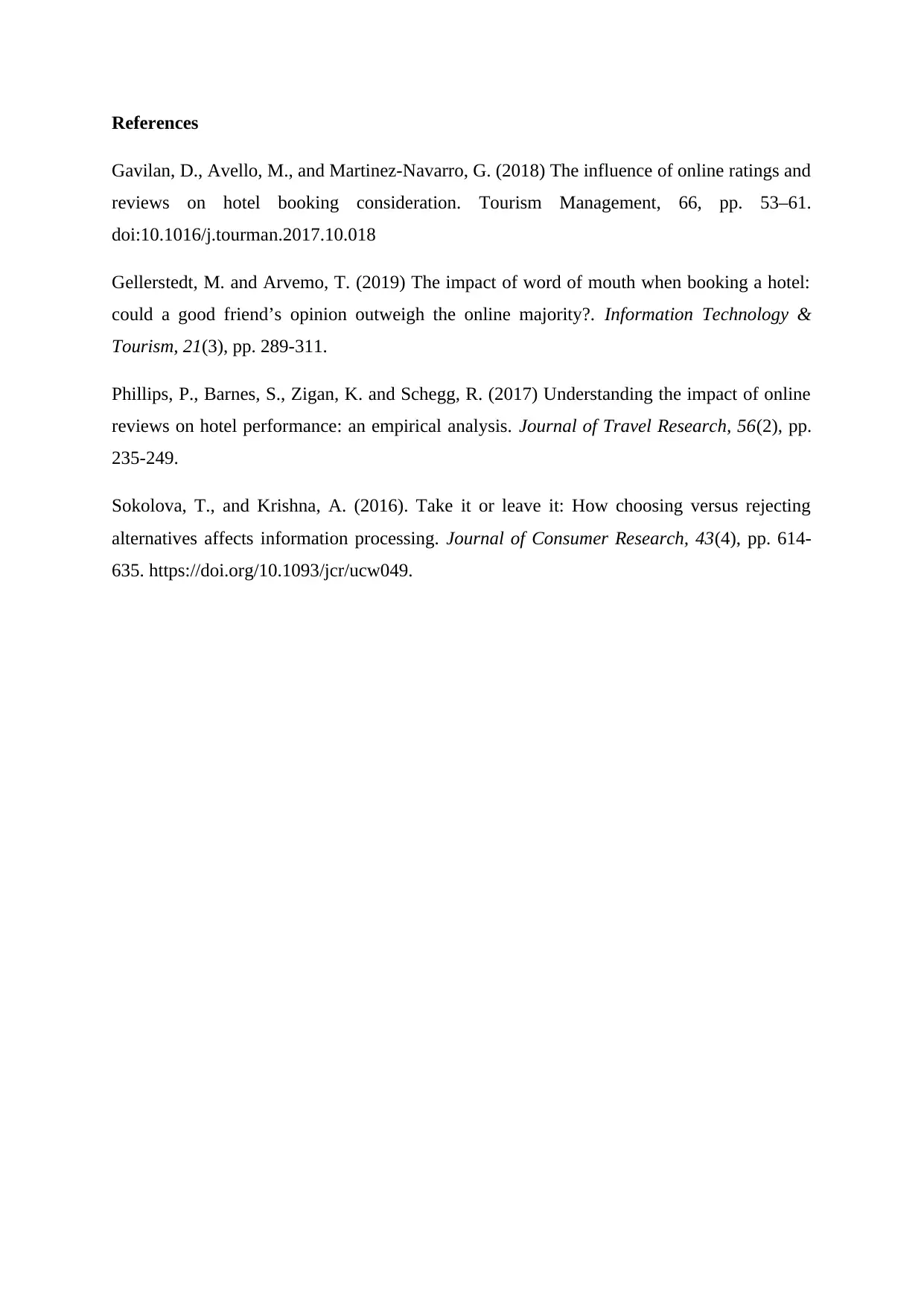The Impact of Social Media on Marketing Luxury Hotels: A Report
VerifiedAdded on 2022/09/05
|4
|744
|18
Report
AI Summary
This report delves into the significant impact of social media and online platforms on the marketing strategies of luxury hotels. It explores how customer reviews and online ratings, often replacing traditional word-of-mouth, influence consumer decision-making. The report highlights the importance of both positive and negative reviews, demonstrating how they shape perceptions and affect hotel choices. It also examines the role of reviews from friends and family, emphasizing their credibility and influence, particularly in conveying non-price information like service quality. The study underscores that while online ratings are important, they may not lead to the final decision as much as reviews from people known to the consumer, concluding that online ratings, reviews, and opinions from friends and family are all crucial factors in the hospitality industry.
1 out of 4











![[object Object]](/_next/static/media/star-bottom.7253800d.svg)